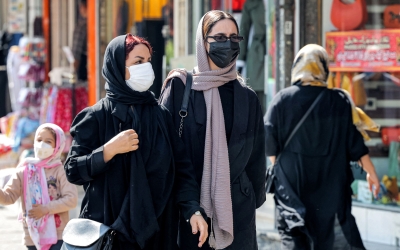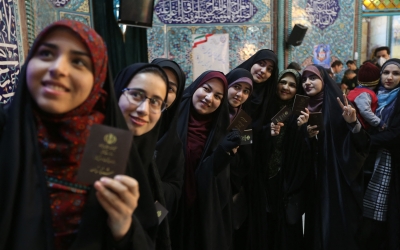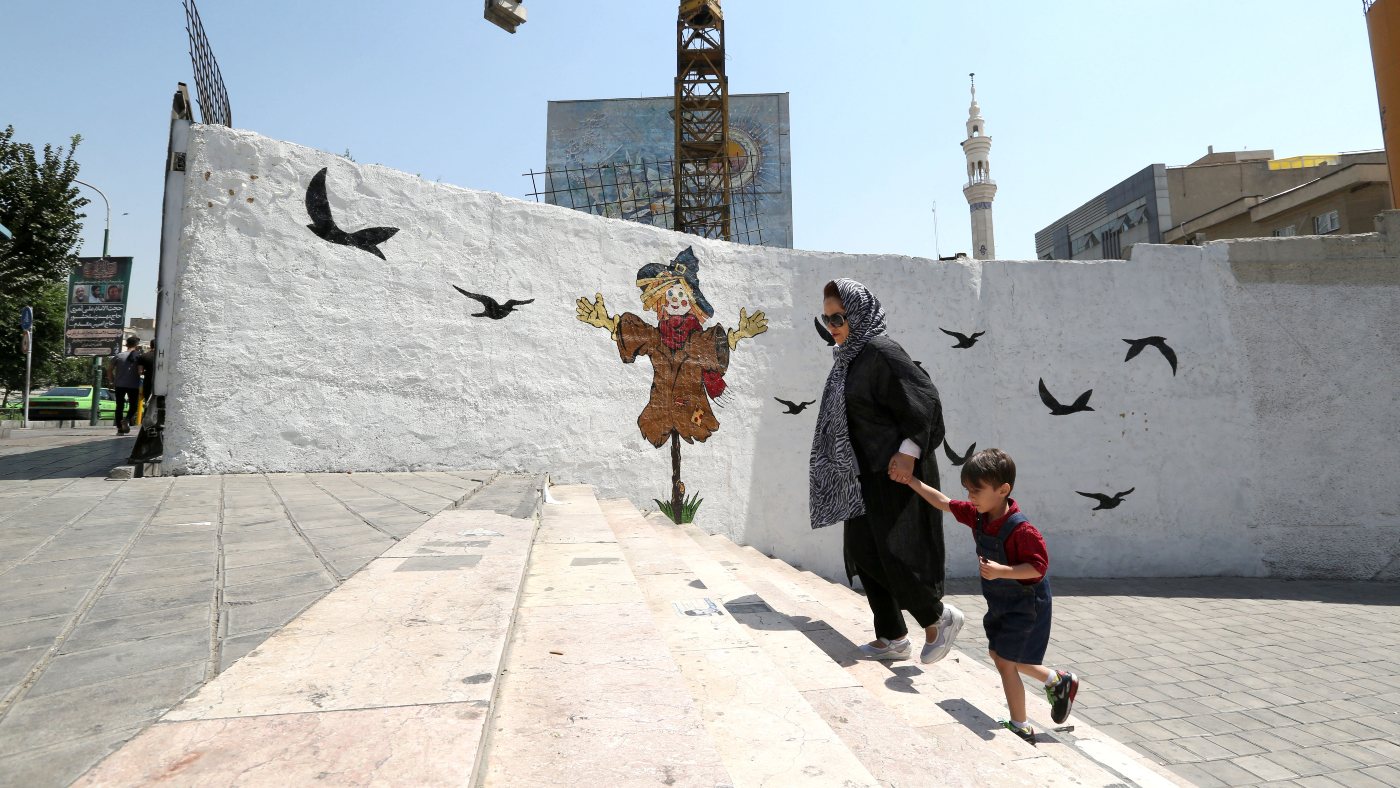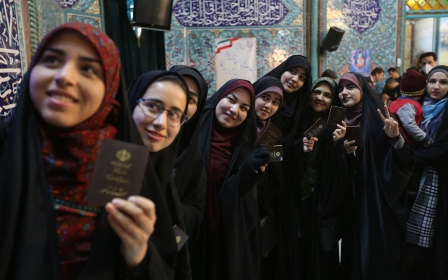Iran pushes for baby boom by curtailing access to contraceptives and abortions
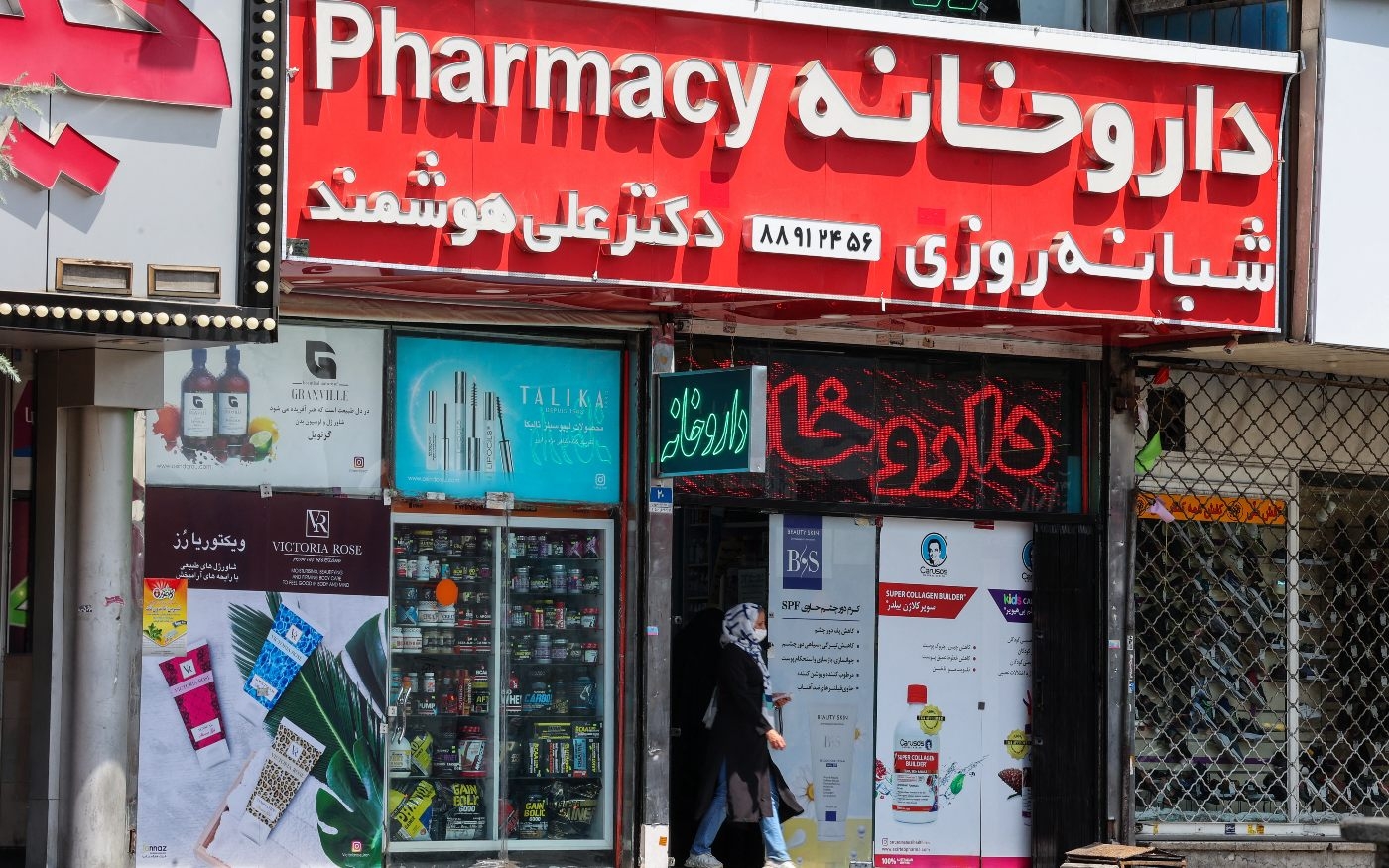
"We don’t have condoms" has become a familiar response to those seeking to purchase the contraceptive in pharmacies across Iran’s capital.
Mohammad Reza has worked as a supervisor at a pharmacy on Tehran’s Valiasr Street for five years. When asked about the availability of contraceptives in the country, he said that foreign-brand products were now much harder to come by, and more expensive, while those manufactured in Iran and still available on the market were “not comparable” in quality.
While the chemist attributed the shortage in part to years of international sanctions on Iran, “in recent months, the scarcity of condoms has become more serious than before”, and he believes the government is behind the recent dearth in prophylactics.
Officials are determined to increase the country’s population by all means necessary, as Iran’s birth rate has declined precipitously in recent years, amid crushing international sanctions that have squeezed the economy. And not everyone welcomes the government’s efforts to boost natality at all costs.
Controversial legislation
New MEE newsletter: Jerusalem Dispatch
Sign up to get the latest insights and analysis on Israel-Palestine, alongside Turkey Unpacked and other MEE newsletters
Supreme Leader Ayatollah Ali Khamenei has been open about his strong opposition to birth control in recent years. He instructed that distribution of contraceptives was to be limited in state-run health and education centres, especially in the country’s poorer provinces, stressing repeatedly the need to increase Iran's population to 150 million - in 2021 there were an estimated 85 million people living in the country.
The government’s insistence comes after the birth rate in Iran has seen a sharp decrease in recent years, with a 25 percent drop between 2017 and 2020, according to the Statistical Centre of Iran.
There has also been new legislation, entitled “Youthful Population and Protection of the Family”, which entered into effect after President Ebrahim Raisi submitted it to the health ministry and the vice-presidency for women and family affairs on 15 November, a month after it was approved by parliament, on 16 October.
The Guardian Council, a government body composed of jurists and Islamic clerics, ratified the plan for implementation over a seven-year period.
Approved in accordance with Article 53 of the Constitution by the Joint Commission without being discussed during an open parliamentary session, the plan offers some financial and employment benefits to those who have children, while imposing stricter restrictions on contraception and abortion.
The legislation notably restricts the supply of hormonal contraceptives in pharmacies and prohibits the free distribution of contraceptives such as condoms across the country's healthcare network. The health ministry has also banned doctors and medical staff from using phrases such as “high-risk pregnancy” when speaking with patients.
The situation has been a long time coming. Mohammad Reza Ahmadi, a hardline MP from the city of Rasht, said on 25 November of the restrictions on the sale of contraceptive products that “it has been a long time since the instructions have been given”.
However, not all lawmakers view the new legislation in the same light. During the same parliamentary session, Ahmad Hossein Fallahi, a representative from the city of Hamedan, denied that the move amounted to an outright ban on birth control.
“The law that has been approved is more of an incentive to have children and it does not prohibit such items,” he said. “We are encouraging people to have more children. We are not forcing them, instead we are encouraging them.”
‘Intruding in people’s beds’
Regardless, the move has left many health professionals in Iran concerned about its implications.
Dr Massoud Mardani, a member of the National Aids Committee, argued on 10 November that the law was flawed and not based on medical expertise.
"Imposing restrictions on contraceptive methods in Iran with the aim of increasing the population can result in an increase in unwanted pregnancies and sexually transmitted diseases, and could lead to a surge in the cases of HIV in the country," he warned.
The law’s many controversial clauses have also elicited strong criticism from women's rights activists and doctors. Article 51 of the law has drawn flak for ending government subsidies of some forms of birth control, without taking into account the consequences for women’s health and families’ overall welfare, especially in poorer provinces, where many Iranians struggle to make ends meet.
“This law has been passed regardless of the consequences and problems it may cause for women,” Fahimeh Miri, a journalist and women's rights activist, told Middle East Eye. “Lack of adequate education on sexually transmitted diseases has already led to high rates of these infections in the country.
'Why should we have children? Why should we add another person to this world in such circumstances where we can't make ends meet?'
- Samaneh, Iranian woman
"Many people in rural and poor areas who used to receive contraceptives for free will be denied access under the new law," the veteran journalist added. "It is not clear what disasters await these people, especially those who have not received the necessary education on sexually transmitted diseases."
Dr Maryam Kashanian, vice president of the Iranian Association of Obstetricians and Gynaecologists, said on 18 November that the law not only restricts access to contraceptives, but also to sexual health education.
“Contraceptive methods have been strictly curtailed even in residency programmes testing residents who are doing their obstetrics and gynaecology courses, and education on safe sex in health centres has stopped as well,” she said.
The new law also paves the way for new restrictions on abortion in the country. Currently, abortion is legal in Iran during the first trimester of pregnancy in cases of foetal abnormality or when the pregnancy poses a threat to the mother’s health, pending the approval of three doctors.
An all-male committee consisting of doctors, Islamic jurists, legal representatives and members of the parliamentary health committee is set to decide on new regulations for abortion - likely making the procedure harder to access in a safe and legal way.
Article 54, meanwhile, obliges laboratories that process blood tests to record information about patients - particularly pregnant women - in a database shared with government authorities, a move interpreted as trying to keep tabs on pregnant women in order to discourage abortion.
“People with unwanted pregnancies resort to illegal abortions, which can be very dangerous and even cause women’s death or their permanent infertility,” Khashanian noted.
For some ordinary Iranians, the government's approach fails to address the core reasons behind the falling birth rate - namely, the economic insecurities that discourage many from having more children, or any at all.
“Why should we have children? Why should we add another person to this world, in such circumstances where we can't make ends meet?” Samaneh, a child-free woman who has been married for eight years, told MEE. “With what prospects for the future should we have children?”
The failures of Iran’s leadership in resolving these underlying issues, Samaneh argues, have led them to focus instead on micro-managing Iranians’ lives.
"Look at the economic problems that they cannot resolve, the sanctions that they cannot lift,” she added. “They have put their knees on people’s necks and told them to have children.
“The only thing they are good at is intruding in people's beds.”
This article is available in French on Middle East Eye French edition.
Middle East Eye delivers independent and unrivalled coverage and analysis of the Middle East, North Africa and beyond. To learn more about republishing this content and the associated fees, please fill out this form. More about MEE can be found here.


